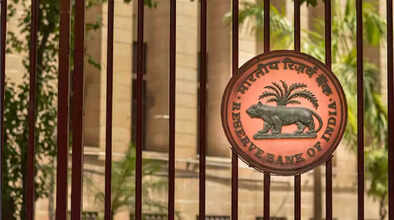RBI imposes restrictions on this Himachal Pradesh bank, customers cannot withdraw more than ₹10,000

RBI Imposes Restrictions on Himachal Pradesh’s Baghat Urban Co-operative Bank; Withdrawals Capped at ₹10,000
The Reserve Bank of India (RBI) has imposed strict restrictions on The Baghat Urban Co-operative Bank Limited, located in Solan, Himachal Pradesh. Under the new directive, customers will now be allowed to withdraw only up to ₹10,000 from their savings or current accounts. The move comes after the central bank observed irregularities and financial stress in the bank’s operations over recent months.
According to the RBI’s statement, the decision was taken after detailed discussions with the bank’s management and board members. Despite repeated reminders, the bank reportedly failed to implement effective corrective measures. To safeguard the interests of depositors and maintain financial stability, the RBI has invoked restrictions under the Banking Regulation Act, 1949.
Key Restrictions Imposed by the RBI
Under the revised conditions, The Baghat Urban Co-operative Bank cannot:
-
Grant any fresh loans or advances without prior approval from the RBI.
-
Renew or sanction new credit facilities.
-
Accept any new deposits or borrow additional funds.
However, the bank is permitted to adjust deposits against existing loans, allowing limited financial operations to continue for account reconciliation and essential services.
The central bank clarified that this action does not amount to the cancellation of the bank’s license. The bank will continue its operations under strict supervision and within the limitations specified by the RBI until its financial position improves.
RBI’s Reason for the Action
The RBI noted that the cooperative bank’s cash flow and liquidity levels had weakened, raising concerns about its ability to meet withdrawal demands. Given the deteriorating financial health, the regulator decided to impose restrictions to prevent any further risk to depositors’ funds.
Officials from the RBI stated that this step is a preventive measure designed to protect depositors, not a punitive one. The bank is expected to take corrective actions and strengthen its financial position in the coming months.
Duration and Future Review
The imposed restrictions came into effect on October 8, 2025, and will remain in force for six months, unless extended or modified earlier. During this period, the RBI will continue to closely monitor the bank’s functioning and may relax or tighten the restrictions depending on progress.
Deposit Insurance Protection
The RBI also reminded customers that eligible depositors of the bank are covered under the Deposit Insurance and Credit Guarantee Corporation (DICGC) scheme. Under this scheme, each depositor is entitled to receive up to ₹5 lakh as insurance coverage in the event of bank failure. This safety net ensures partial protection for customers’ deposits even under restrictive conditions.
Impact on Customers
The withdrawal cap of ₹10,000 is expected to cause temporary inconvenience to account holders, especially those relying on the bank for regular transactions. However, the RBI emphasized that such measures are crucial to stabilizing the institution and ensuring long-term depositor safety.
The regulator further assured that it will review the restrictions periodically and may modify them if the bank demonstrates significant improvement in its financial and governance standards.
As the RBI continues to tighten its oversight on smaller cooperative banks, this move serves as a reminder of the importance of sound financial management and compliance with regulatory standards. For customers, the advice remains clear — always diversify banking relationships and stay informed about the financial health of the institutions where they deposit their money.

